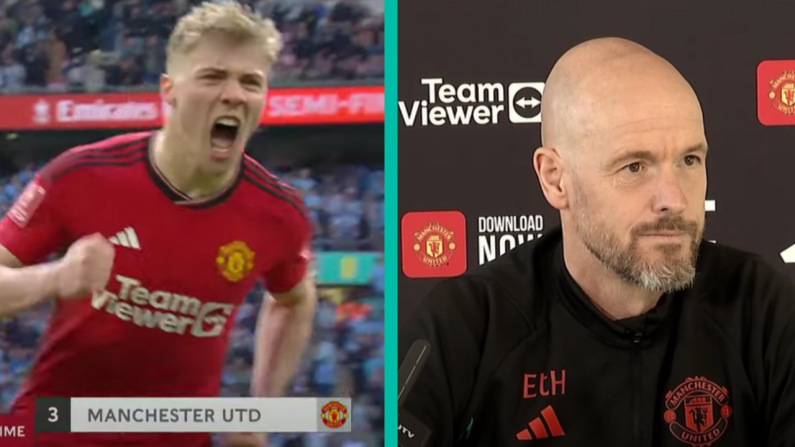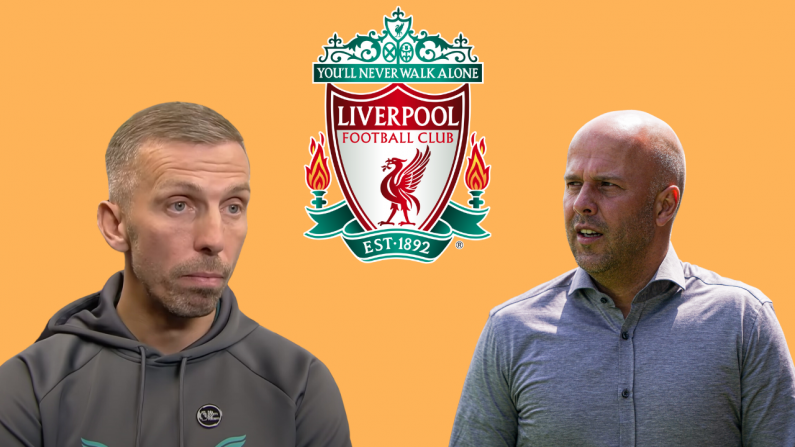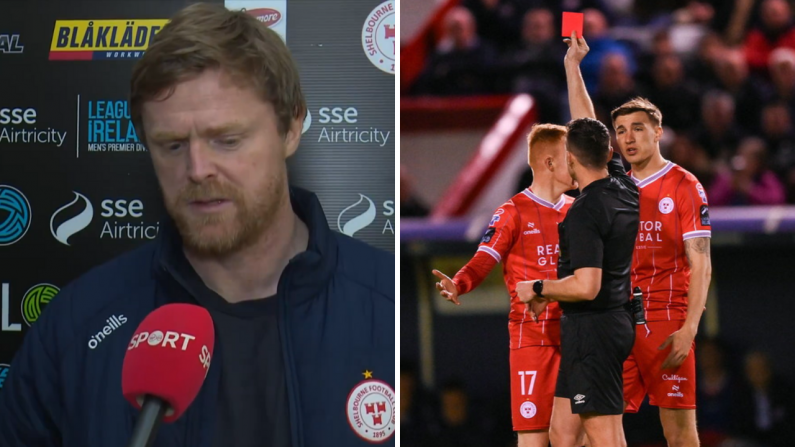The 2010 World Cup appears to have marked something of a watershed in the English psyche around major tournaments. They approached the competition in bullish mood having demolished everyone in the qualifying campaign. Even by England's recent standards, the qualifiers that year were a cakewalk.
They boasted a massively well-remunerated manager, an Italian hired gun with pretty much no track record of failure. Capello had won trophies in every place he landed, though it was noted by the odd cynic that he only ever seemed to land in the most glamorous locations.
Former Lazio manager Zdenek Zeman once said of Capello that 'my dead grandmother could win with the teams he manages', a verdict which could equally have applied to Ireland manager Giovanni Trapattoni, if truth be told.
Listen to our interview with Declan Lynch from 21.00 minutes onwards...
[soundcloud url="https://api.soundcloud.com/tracks/267132210" params="auto_play=false&hide_related=false&show_comments=true&show_user=true&show_reposts=false&visual=true" width="100%" height="450" iframe="true" /]
Still, it was perceived that there was little excuse on the managerial front. If England couldn't do it under this manager, then they couldn't do it.
It turned out they couldn't do it.
Yes, not even Fabio Capello's managerial reputation could survive a spell with the English national team. Not only were they not any better than under Capello, they were worse than they'd been under Sven. Significantly worse.
The manner of their loss to the Germans, in particular, was hard to ignore. The conclusion that they had successfully, nay miraculously, managed to avoid through years and years of disappointment and failure, namely, that they might not be good enough, was now staring them in the face in giant capital letters. Even the most hardened jingoists were forced to admit that they had run out of other excuses.
Once they had eliminated all the others - and by 2010, they had already tried all the rest - it was the only explanation left.
The 2010 World Cup may well go down as the tournament that killed English hubris. The attitude of Howard Jacobson, elucidated in the Independent (London version) prior to the Algeria game, has become very much more widespread in the country at large.
Call me hasty, call me foolhardy – for I write this the night before England kick off against Algeria – but don't call me unpatriotic. I make this prophetic pronouncement with great sadness. But make it I must. We are not going to win the World Cup.
It is still occasionally remarked that the English 'always build themselves up before the tournament' but this is an outdated assertion.
In this corner of the globe, the only pre-tournament delusion ahead of Euro 2012 was to be found in this country, where the notion that we might lose to Croatia was barely even considered and all the talk was of surprising the vulnerable Italians in the final group game.
In England, meanwhile, there was practically no hype, at least not until they reached the quarter-finals. And even then it hardly reached stratospheric levels.
While this partly a consequence of both the failure and passing of the alleged 'golden generation', much of the credit must go to the stiffs in the FA hierarchy, who have appointed the perfect manager for this new era.
During his time at Fulham, Roy Hodgson, in an interview with the Observer Sport Monthly, gave us a glimpse of his philosophy, laying out his credo as an arch expectation lowerer.
I'm worried about ceilings, and I'm worried about the constant desire for progression. I know you've got to progress but you can start reaching too high, and in doing that you can destroy a little bit of the tradition of the club, the structure.
No tree grows to heaven. I constantly preach the message that all the time we can remain a Premier League club, filling the stadium with 25,000 people, playing the sort of football that those 25,000 people seem to appreciate, I've got to say I think that's success.
In our interview with Sunday Independent columnist Declan Lynch - the author of the new book 'The Ponzi Man' - on the Racket yesterday, he alluded to Hodgson's greatest talent, the man's genius, his ability to lower expectations.
England are in a very interesting phase because their great curse used to be too much expectation. And then they brought in Roy Hodgson whose great genius in life is lowering expectation. I mean that's more or less all he does. He's a lowerer of expectations. That's his job description.
And they've even gone to the lengths of leaving out Danny Drinkwater so could actually say they now have officially the youngest squad in the tournament. So that when it all goes wrong, they can say 'well, we have the youngest squad in the tournament and we're great for the future'.
The proof of Hodgson's genius for lowering expectations is the fact that he is still England football manager.
He has managed to remain in charge after a middling to reasonable Euro 2012 and a poor World Cup in 2014, results that would have sunk his predecessors and possibly even led to a tabloid hate campaign.
Following last night's 1-0 over Portugal, Hodgson was positive about the performance and the young lads, but the one message he wanted to impart, above all, was that England 'are not the finished article'.
Read more: Joxer Goes To Stuttgart - Where Are They Now?











